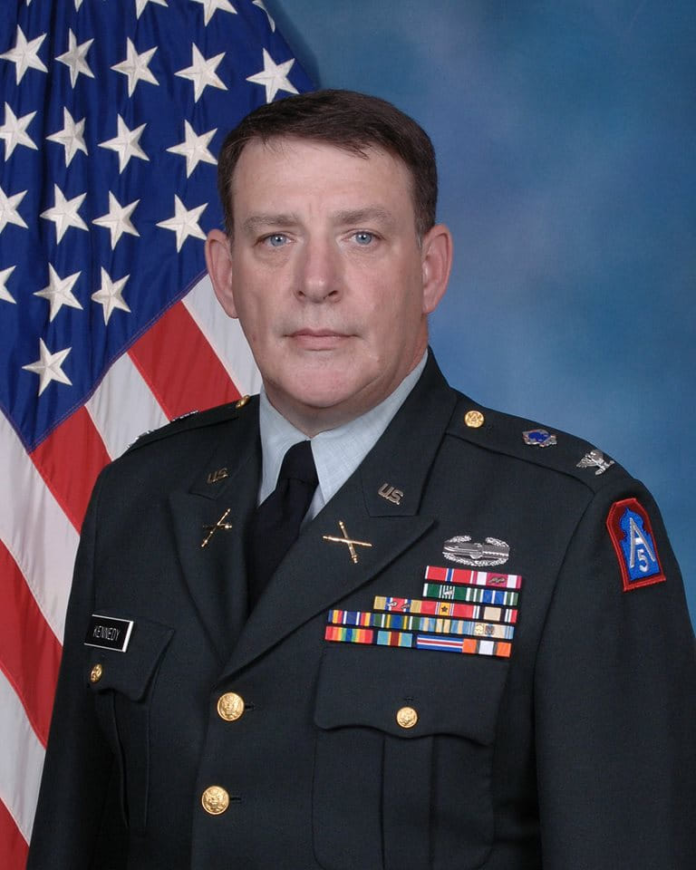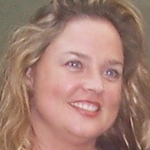By Michelle Price
Special to the UCBJ
COOKEVILLE – In honor of Veterans Day, UBCJ sat down with Overton County native Jim Kennedy, who has had both a successful 32-year military career, retiring as a Colonel (promotable), and very eventful career as a businessman with several successful companies to his credit. Kennedy is the CEO/co-founder of Procyon Alpha Squared.
UCBJ asked Kennedy to share his insights on government contracting, business skills, and what insights he could share from his array of experiences.
Background
Kennedy’s educational background is as diverse as his career choices. After graduating from Livingston Academy, he attended Cumberland University for his undergraduate degree in healthcare administration. His graduate studies include an MBA in Finance from Averitt University, a degree in national security and strategic studies from the Naval War College, and national security and strategic studies from the Army War College.
Kennedy credits the military for honing his management skills. He served as an artillery officer and commanded at the battery, battalion and brigade levels. When Kennedy wasn’t serving in a command position, he worked in staff positions or black ops.
How did you get started in business?
Kennedy got his start in business while he was still in the army. Kennedy and another brigade commander partnered to help a young Captain, who had developed diabetes, get a company started. Kennedy invested in the company, a defense contractor, and after he left the army, he worked for that company for about three years.
Around that time, Kennedy got VA certification as a service-disabled veteran, so they started another company that was able to go after set-asides in government contracting. The company used the disabled veteran status to be able to get government contracts to rebuild heavy vehicles that had been badly damaged in theater, such as tanks, Bradley fighting vehicles and some strikers.
“I sold out of that and started a document conversion company, and that led me into what I’m doing today,” said Kennedy. “We were at a defense event at NASA, and I met a man whose business complemented my business. We met with other men, and that is how we got started on what we’re doing now. Nothing was really planned, everything was accidental.”
The Small Business Administration (SBA) has been offering a lot of workshops on government contracting. Any advice you would have to someone fresh out of the military who might be interested in government contracting other than keeping contracts that aren’t government contracts too?
“There’s almost a barrier to entry with government contracts, and that is past performance,” explained Kennedy. “If your company has no history of past performance and they have to go on individual experiences and past performance, you have to be very in sync with your past performance and what the contract is calling for.
“For example, if you are talking military construction or government construction, you have to have a personal resume that just highlights construction. It’s basically the same thing with any specific contract you go for. If you are making a widget – a cable assembly – you have to have experience in that specifically, because they really don’t look at experience.”
Kennedy further explained the contract process.
“A lot of things they look at when they award a contract:
- Company past performance – have they had contracts, how they managed those contracts, were they on time, were they correct, that kind of stuff. You are evaluated on that.
- You’re evaluated on being a set-aside. If it’s a service-disabled veteran-owned, if it’s a woman-owned, if it’s a native American owned company, then that gives you a few extra points.
- They look at demographics. Sometimes they look at Historically Underutilized Business (HUB) Zones. Are you associated with a HUB Zone, or are you in a HUB Zone? There’s a lot of criteria in HUB Zones. A company can be located in a HUB Zone, but 51% of your employees have to live in a HUB Zone. So, if your business is in a HUB Zone, but all your employees live in Franklin, then you are not a HUB Zone business because you have to have over 51% live in HUB Zone, and that varies from contract to contract. They will set a percentage of how many employees have to come from a HUB Zone to be able to do that.
One of the things they try to do with government contracts is to stimulate a microeconomy. Whether it’s Cookeville, Overton or Fentress county, or wherever it is, they try to increase the microeconomy with those contracts. For example, I know companies that have won contracts in certain areas and brought the majority of their people in, really doing nothing to stimulate that economy. When that contract came up for review, they either had to make some drastic changes in personnel, or they would lose the contract.”
What is the single biggest thing you’ve learned from dealing with state and federal agencies?
“The biggest thing I’ve learned is nothing goes fast,” advised Kennedy. “And if you’re in business – even though government contracts are at times pretty lucrative – as a business guy, you need to have a good mix of commercial and private with government contracts. You can’t thrive on just government contracts because government contracts go in cycles.”
Kennedy explained that depending on administrations, they can be heavy or lax on government contracts. Conservative administrations tend to outsource more things, where non-conservative administrations tend to build up government, so government does a lot of the things themselves.
“I’m of the opinion that government is not efficient,” Kennedy said. “Private business can be more efficient in certain aspects of things of what the government needs done and what the government can do. When you have more money go into overhead than you do actually production or services, that’s not conducive to good business.”
It sounds like things often need to be fluid. How do you approach change?
“Daily. In approaching change, and this is one of the things you learn in the military, if it’s not broke, don’t try to fix it. A lot of people like to put their twist on stuff. If it’s working, and it’s working efficiently, why change it? The only reason that I would see to change something is if you’re not efficient in what you’re doing, technology has changed, or the market has changed – that is what drives change. It’s not change for change sake.
One of the changes we are making right now hit me one day at my desk when I was eating my lunch, and I had a cup of yogurt. Looking at my cup and that container of yogurt got us on the path to changing a production aspect of what we are doing, that when implemented, it’s going to make us a whole lot more efficient – we can do stuff a whole lot faster and at less cost. It was just sitting there and thinking this is three inches deep and two inches in diameter. If I make it 13 inches wide, 17 inches long and make it four millimeters deep, I can do what I need to do with it and put it on production, and I can make four a minute, where right now, I’m making one every two minutes.
Inspiration can come from anywhere.
Another example, there is a procedure for testing containers that can be put on aircraft. Right now, there are some new regulations that are being staffed and studied, and we’ve had aeronautical engineers say there’s no way it can be done. At 2 a.m. one morning I woke up and the answer was right in front of me, so I get up, get to the dining room table, get a legal pad and started sketching it out and making notes. That actually almost cost me a divorce because my wife came in and asked me what I was doing, and I told her to shut up and go back to bed, I’m on a roll, and I have to get this on paper before it escapes me.
When inspiration hits, record it – whether it’s on a device like a recorder or whether it’s the old fashioned way with a paper and pen. Get it recorded and get it recorded fast, because it can hit you in the middle of your sleep. That’s when I do the most of my thinking, when I’m going to sleep, and when I wake up. I keep a pen and note pad beside my bed all the time, just to get that stuff recorded.”
What’s the best advice anyone ever gave you, and did you follow it?
“Yeah, I did. The best advice – and I’ve had a lot of great men as mentors – I go back to the day I took command of an artillery battalion. Before the ceremony, I went to my boss. He said, ‘Jim, you’re a great artillery officer, but artillery is not what you’re going to be doing.’ It was kindly strange his comment because I was taking command of an artillery unit.
He said, ‘all the gunnery and maintenance and tactics of what you do, what an artillery unit does, you’re not going to be directly involved in that. You’re going to be managing. At any given time, you are going to be juggling 10 to 12 balls. Of those 10 to 12, four to six of them are going to be glass.’ His advice was, ‘Do not drop the glass ones. They will break, and you will have a mess on your hands.’ He said the other seven or so are going to be rubber balls. It’s ok to let those bounce, and they may bounce two or three times. They will bounce one last time, and then they will turn to glass, so make sure you grab those and keep those going. And in that conversation, I heard what he said, but I really didn’t understand what he meant about it. After about 30 days as battalion command all of that came to light.
You’re constantly juggling your resources, whether it’s money, time or people. You are constantly juggling that to achieve your objective or goal. He’s exactly right. Somethings you can let run on their own until they get to that critical point, and then you have to get involved in managing them.”
How do you know which balls are glass and which are rubber?
“You know, in the business world, if it is making money now, or if you are starting to lose money on it, or sales are going down, that’s a glass ball. If you are in R&D and you are the only person you know who’s doing that, then you can take your time but if you find out someone else is doing it, or if in the market there becomes a demand that turns to glass so you have to manage it and put it out to market before someone else does.”
What’s the biggest lesson you have learned about yourself through your career?
“I don’t know it all, and you don’t have to know it all. There’s a couple of ways you can overcome not knowing it all.
One is to surround yourself with smart people and empower those people to do what they need to do.
The other thing that you do is, in the military, we call it situational awareness. I guess in the business world, you would call it competitive intelligence. What are your competitors doing? And what you’ve got to do there is you have to position yourself where you’re constantly in front, because if you are three or four spaces back, you may be successful, but you won’t be as successful. You have to create your market. If the market isn’t out there, then you have to do something to stimulate the market.”
What about time and email management?
“First thing I do in the morning is go through it and delete everything that doesn’t pertain to our business. Things that have no pertinence to what I’m doing, I delete. If I have purchase orders or something like that, I get them out it who they need to go to because that’s making me money. Aerospace manufacturing topics, I’ll look at. Conferences – I look at the purpose of the conference. If they don’t give me details, I’m not going to spend 30 minutes trying to find out. If they can’t give me details, then they don’t need me there. When something comes in throughout the day, if it’s something that requires immediate action – I do it, if it’s something of no interest, I send it to deleted emails, and I delete the deleted emails twice a day.
One of the practices I have, but you can’t always do it, especially with a start-up, but an action I like to touch only one time. When it comes across my desk, when I send it out, I like for it to be gone. When you are doing stuff that’s technology-related, you may not get to keep that policy, because you may have to go back and revisit the technology.”
When it’s all over how do you want to be remembered?
“In the military, I was known as somebody that required excellence. Sometimes that’s misperceived as being an a**hole, but in the military, there’s a reason because if we go to war it saves lives.
In the business world, excellence is the difference in being a mediocre company and a company that can be a top company in whatever it does. You hear people talk about some of the big Fortune 500 companies or Fortune 100 companies they work for, and how management is so meticulous. It’s because they are focused on what they are doing. Sometimes it goes against the personality of the management to be that way. I’m kind of a laid back person when you get to know me, and when you have to be very direct or demanding people misperceive who you really are.
Every battalion commander is required to have his command philosophy published. I’ve seen guys write 30-page dissertations. My command philosophy was condensed to one page because most people aren’t going to read a 30-page dissertation of what you think command is and all those great quotes. I had my 10 rules of command and those were my 10 commandments, so to speak. It was very to the point. 1. You don’t lie to me 2. You don’t steal from me 3. I’ll be your number one advocate until you prove yourself wrong with me and 4. If there is a problem, unlike wine, they do not get better with time. Be proactive. Be involved in it.
Starting a business and running a business. People say, ‘Oh, he’s got his own business. He’s doing well. He’s rich.’ What they don’t see is you’re up at five o’clock and you go to bed at eleven, and even when you are sitting at home with your family watching television or doing family things, you are constantly thinking about it. There’s really no downtime from it. The downtime is when you go to sleep, and you escape it.”
If you could give your son one piece of advice, what would it be?
“No matter what you do, take pride in it, and do your best. Whether that’s head of a multinational organization or if you’re down here at one of the burger joints flipping burgers.
I think that’s one of the things we as Americans don’t really recognize, and I say that having lived in Europe and having traveled the world over. We are probably one of the only societies that is impressed by what people do. I learned this in Germany; we have a lot of German friends. We have a lot of Thai friends, a lot of Japanese friends, Korean friends. No matter what they do, especially in Germany, they take pride in what they do.
I have a friend that was managing director of the Bank of Lichtenstein. He would talk and mingle with everybody because he looked at that as a learning experience. He sat down and talked with a restaurant owner or with ordinary people. But if you really knew who he was, from an American perspective, you would think he’s untouchable because he’s at a certain level. But we here in America, you talk to somebody that cooks burgers or digs ditches, then you meet somebody who is CEO of Amazon or Apple, one of those guys, there’s a big mental gap between the value of that person and that person. You can learn from anybody. It’s what you do with that knowledge that makes you who you are.”








